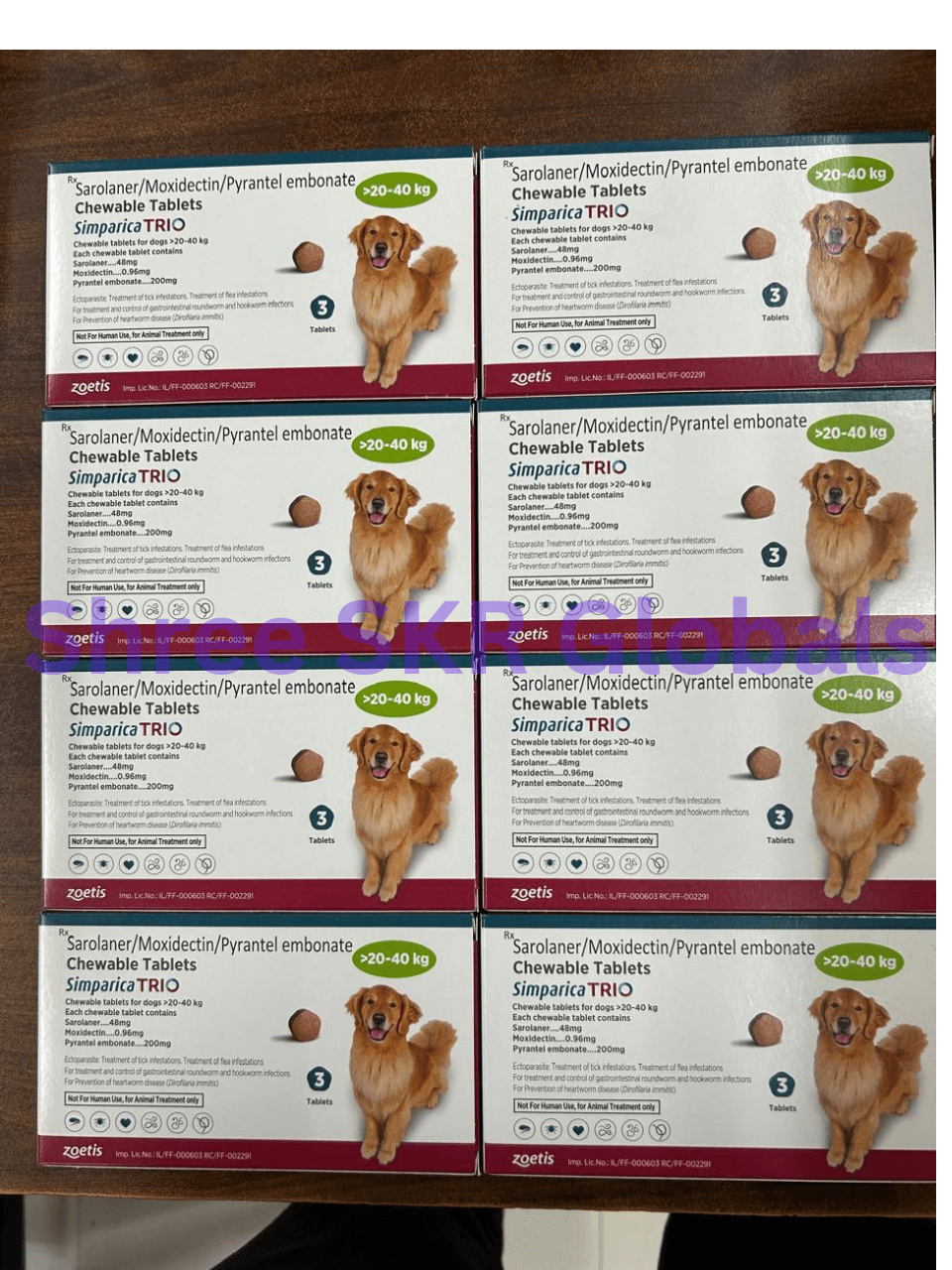Protecting your canine companion from a multitude of parasites is crucial for their overall health and well-being. Fortunately, the development of all-in-one flea, tick, and heartworm pills for dogs has simplified this essential aspect of pet care. These convenient monthly medications offer broad-spectrum protection, safeguarding your dog against various internal and external threats. However, understanding the advantages, disadvantages, and product options is vital before making a decision.
Understanding All-In-One Parasite Preventives
Historically, safeguarding dogs against parasites often involved administering multiple treatments. Now, convenient all-in-one pills such as Simparica Trio, NexGard PLUS, and Credelio Quattro are readily available. These products are designed to provide comprehensive protection, often including coverage against fleas, ticks, heartworms, and various intestinal parasites like roundworms and hookworms. In some cases, like Credelio Quattro, tapeworm protection is also included.
Advantages of Combination Preventives
The convenience of these all-in-one solutions is a significant draw for many pet owners. These flavored chews or tablets are typically palatable, making monthly administration straightforward. Beyond convenience, they offer more comprehensive protection than individual treatments, potentially reducing the risk of missed doses and the associated exposure to parasites. While the upfront cost may seem high, these combination products can be more cost-effective in the long run compared to purchasing separate treatments. Furthermore, by consolidating medications, the risk of adverse drug interactions is minimized.
Potential Disadvantages to Consider
Despite their benefits, these all-in-one medications are not suitable for every dog. One concern is the inclusion of ingredients that may be unnecessary for dogs at lower risk for certain parasites, which could potentially contribute to parasite resistance. A more significant concern for some veterinarians is the association of the isoxazoline class of drugs, present in products like Simparica Trio, NexGard PLUS, and Credelio Quattro, with an increased risk of neurological issues, including seizures. Therefore, these preventives are generally not recommended for dogs with a history of neurological problems. Other potential side effects include vomiting and diarrhea. It’s also important to note that these medications require a veterinary prescription.
Popular All-In-One Product Options
Simparica Trio Chewable Tablet for Dogs
Simparica Trio combines three active ingredients: sarolaner (an isoxazoline), moxidectin, and pyrantel. This formulation provides protection against heartworm disease, fleas, ticks, roundworms, and hookworms. Available as a monthly chewable tablet, it can be administered with or without food and comes in six different dosages tailored to a dog’s weight.
NexGard PLUS Chewables for Dogs
NexGard PLUS contains afoxolaner (an isoxazoline), moxidectin, and pyrantel, offering protection against heartworm disease, fleas, ticks, roundworms, and hookworms. These beef-flavored chews are given monthly, with or without food, and are available in five weight-based dosages.
Credelio Quattro Chewable Tablets for Dogs
Credelio Quattro is formulated with lotilaner (an isoxazoline), moxidectin, pyrantel, and praziquantel. This comprehensive chewable tablet protects against heartworm disease, fleas, ticks, roundworms, hookworms, and tapeworms. It is suitable for dogs with meat allergies and is given monthly with food. Four different dosages are available based on the dog’s weight.
Consulting Your Veterinarian
The decision to use an all-in-one flea, tick, and heartworm preventive should always be made in consultation with your veterinarian. They will assess your dog’s health history, lifestyle, age, weight, and specific parasite risks. A thorough physical examination is essential before any prescription is issued. If your dog has experienced neurological symptoms such as seizures, tremors, or unsteadiness, your vet will likely advise against products containing isoxazoline drugs. However, for healthy dogs at significant risk for multiple parasites, an all-in-one preventive may be the most appropriate and convenient solution.
Frequently Asked Questions
What is considered the best heartworm and flea pill for dogs?
The “best” product varies depending on individual dogs. Factors like age, health, and parasite exposure risk are critical. A veterinarian’s recommendation is essential for selecting the most suitable preventive.
Can I administer heartworm and flea medications together?
This depends on the specific products and your dog’s health status. Some combinations are safe, while others may pose risks. Always consult your vet before combining medications.
Are heartworm pills truly necessary for dogs?
Yes, heartworm disease is a serious and potentially fatal condition present nationwide. Prevention is vital due to the high cost and uncertain success of treatment.
Do heartworm pills offer protection against fleas?
Some products provide dual protection, while others do not. Always check the product label or consult your veterinarian to confirm the specific parasites a medication targets.
Are there combined flea and worm tablets for dogs?
Yes, products like Simparica Trio, NexGard PLUS, and Credelio Quattro are oral medications designed to prevent heartworms, fleas, ticks, and various intestinal worms. Credelio Quattro also covers tapeworms.
What is the recommended frequency for heartworm and flea medication?
Most preventives are administered monthly. However, it’s crucial to follow the specific instructions on the product label or from your veterinarian, as some may have different dosing schedules.

